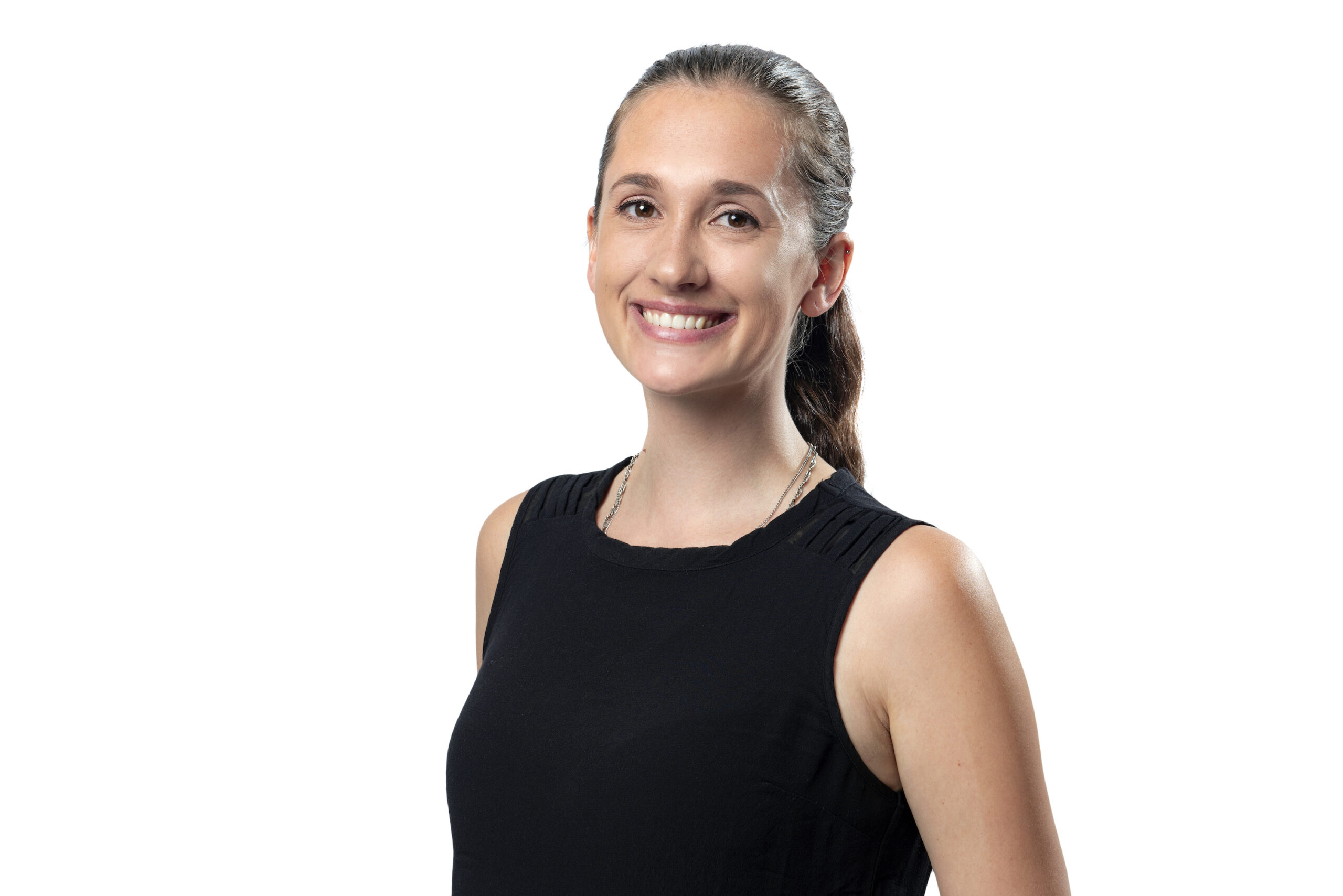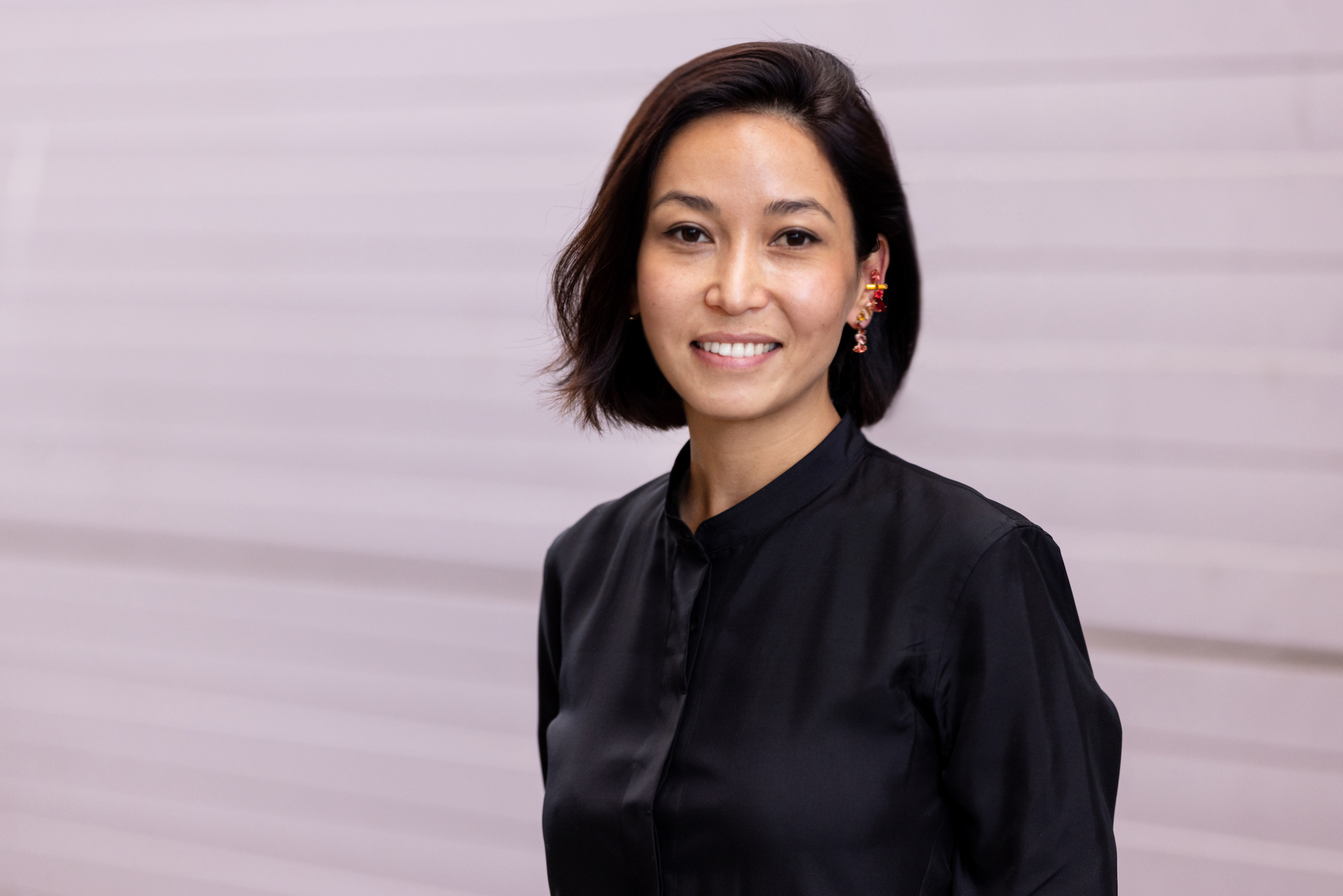This edition of the Logitech MX #WomenWhoMaster series brings together two women from very different backgrounds who have both created remarkable careers at the forefront of science, entrepreneurship, and the environment.
Educated in Canada and Switzerland, Dr. Samantha Anderson is the CEO and co-founder of DePoly SA, a chemical recycling company that aims to enhance the recyclability of tainted single-use plastic waste. Ainura Sagyn lives in Kyrgyzstan, where she creates solutions as a computer engineer, ecofeminist, and co-founder and co-CEO of Tazar, an app that directly connects citizens and companies with recyclers to reduce landfill waste in Kyrgyzstan.
From their distinct vantage points, Samantha and Ainura have seen that environmental harm respects no borders — when it comes to creating a circular economy, we’re all in this together. And in their careers, they are proof that reducing our environmental footprint depends as much on helping girls discover a passion for engineering as it does upon innovating products and solutions that will help ship everyone toward more sustainable lifestyles.

Q: Take us back to when you were little. Did you always love chemistry?
Samantha Anderson: Not chemistry specifically, but I was always into science. I always participated in my elementary school’s science fair, and I was always doing weird little experiments like taking my mom’s spices and mixing them together or putting them in the freezer to see what would happen. So I think I had a healthy scientific curiosity from the beginning.
Q: When did chemistry come into the picture?
SA: In 12th grade, I was exposed to organic chemistry for the first time, and it immediately felt compelling. I didn’t enjoy the quantitative, mechanical aspect of learning chemical reactions but organic chemistry was different. In college, I took a year-long organic chem intro class and volunteered to work in a professor’s lab unpaid, just for the experience, and from then on I was working in labs all year.
Q: What inspired you to start DePoly?
SA: Before I finished my PhD, I had already drifted away from academia and toward materials chemistry, although I didn’t have a specific job in mind. Then, in 2018, research was coming out about the effects of microplastics on people’s health, but there was no real urgency around addressing the problem. My co-founders and I decided to see if we could create a solution with straightforward chemistry. We put together the chemistry required for DePoly to exist, and it all took shape from there. Our hope is that DePoly will reduce global plastic pollution by providing a way to recycle single-use plastics that today are being sent straight to landfills or incineration centers. The current Take – Make – Throw Away linear economy depletes our environment of natural resources.
Creating a circular economy for plastics would mean the single-use plastic most people consume would be made from the waste of years past, eliminating the need to extract more fossil fuels to produce plastic.
Q: Imagine that one of your mentees in the year 2100 chooses the same career as you. What do you want her future to look like?
SA: First of all, I hope that we’ve found ways to mitigate the effects of climate change, so that the environment she navigates is at least as hospitable as our current one.
Whatever she wants to do, I would be more than happy to support her dreams, and I would be excited to see where her unique path takes her. Her future is up to her to create.

While Dr. Anderson was exploring the materials science needed to one day bring DePoly to life, halfway around the world, Ainura Sagyn was learning STEM skills that would culminate in an ingenious waste management solution in Kyrgyzstan.
Q: Were you interested in STEM and coding from a young age?
Ainura Sagyn: I grew up in the small town of Talas in Kyrgyzstan. We didn’t have computers at home and even in computer class at school, we were rarely allowed to actually touch a computer. I never heard about women engineers or programmers but I was interested in learning more. When I went to university, I wanted to study engineering even though I didn’t really know what that meant. My parents had heard of something called food engineering and thought I could become a chef! But at college, I discovered the computer engineering department. They had computers, and classes every day, and their classes were so much fun. So my BS is in computer engineering and my MA is in computer vision and image processing, which is in Machine Learning.
Q: What did you do before starting to work on your app?
AS: Like most developers in Kyrgyzstan, I worked as a remote contractor for different startups and companies abroad. Then I got offered an internship at LinkedIn in San Francisco. It was part of the U.S. Department of State’s TechWomen program, where 100 women from the Middle East, Africa and Central Asia receive internships with top companies or universities. It was amazing! I also teamed up with women friends who were engineers and we traveled across Kyrgyzstan to teach girls the basics of coding.
We wanted to show girls across Kyrgyzstan models of women who code and tell them: You can do it, too! We called it the Coding Caravan.
Q: What sparked your idea for Tazar?
AS: I connected with a friend who is passionate about the waste situation in my country, where waste tends to pile up because disposal systems are less developed. We saw the problem and came up with the idea of a mobile app for waste management. We built it in Kyrgyzstan but it has uses in any developing country with a lot of waste, like Nigeria or Brazil.
Q: What would you say to a girl who wants to study STEM subjects or a woman who wants to create her own start-up?
AS: For someone deciding whether to focus on a STEM subject, I’d say it’s better to learn skills instead of choosing a career when you are 18 years old. You don’t have to stick to one field because with good skills, you can be whatever you want. And solving problems in a creative way is really the top skill. There are lots of solutions, so it’s better not to focus on the technologies, frameworks, or different instruments. Instead, get the skills for creative solutions.
Also, in developing countries, people often think they can only do better by going somewhere else, which in many cases leaves the country “brain dead.” You may have heard of this phenomenon. But to the girls I meet, I say here in Kyrgyzstan, you know the problems from the inside so you can have a bigger impact here. You can be a trailblazer and make changes in your own country!
Samantha and Ainura are bringing their unique skills, experience and passion to address one of today’s most pressing challenges, regardless of where we live: how to create an environment that supports the fullest potential for us all and for generations to come.
Connect with Samantha on LinkedIn and Twitter to learn more about how she’s creating a circular economy for recycling single-use post-consumer plastic waste. And you can connect with Ainura on LinkedIn and Twitter to learn more about how she’s building recycling initiatives and expanding horizons for girls in Kyrgyzstan.
Women Who Master puts a spotlight on women who have made outstanding contributions to STEM fields. The goal of the series is to celebrate those contributions, inspire future leaders, and help close the gender gap in technology.
*The companies and services listed above do not constitute endorsement or recommendation by Logitech.









